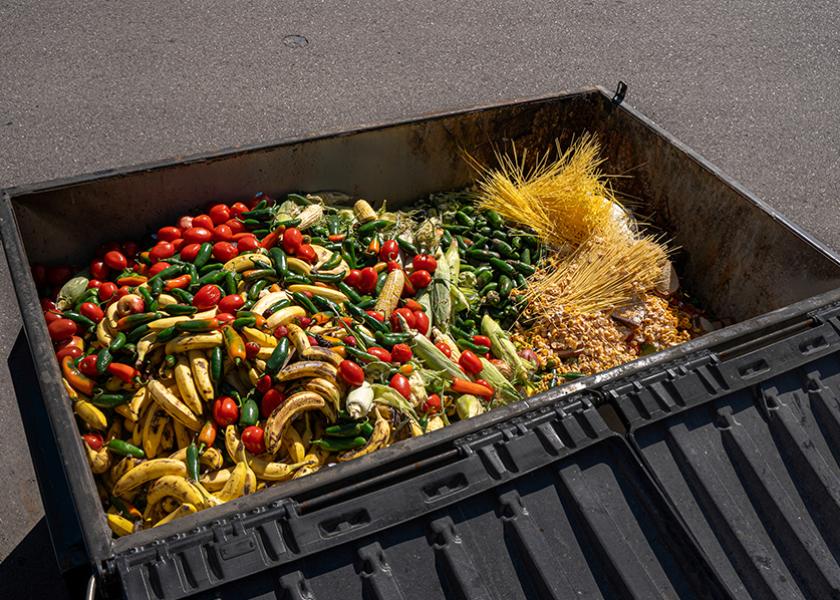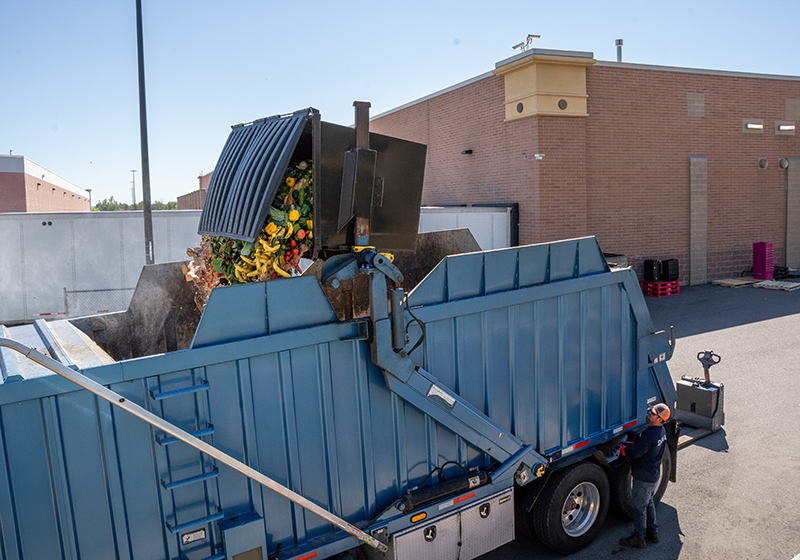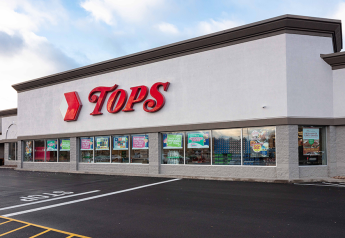Walmart teams up with Denali to tackle food waste at retail

What happens to less-than-perfect, spoiled or misshapen fresh produce that doesn’t make it to shelf?
Too often, this edible produce is chucked into a produce department trash can with other waste — ultimately ending its life cycle in a landfill. However, two companies have partnered to deliver an alternative outcome.
Full-service recycler Denali and Walmart have committed to providing food waste recycling at Walmart’s 4,700 stores throughout the U.S. The companies aim to divert millions of pounds of food waste from landfills and toward uses such as creating compost, feeding animals and generating renewable energy.
“We are excited to continue this journey with the world’s largest retailer and in particular to explore new technologies that will greatly increase the amount of waste Walmart and Denali can divert from landfills,” Denali CEO Todd Mathes told The Packer. “Through this, we’re showing what is possible for the entire grocery industry.”
He said now is an exciting time when it comes to diverting food waste from landfills in the food industry.
“Technology, policy changes and the capabilities of businesses like Denali are converging to make recycling of produce waste and byproducts more feasible and economical than ever before,” Mathes said. “We’re thrilled to be on the cutting edge of this transition to more sustainable food system with so many grocery and produce partners.”

Denali is working with some of the largest food retailers, such as Walmart, and cities across the nation, he said.
“Recycling food waste can be both economical and normal across the U.S.,” Mathes said. “Food has value, even when it’s no longer edible, and putting this resource to good use is an opportunity for our economy.”
Innovation unlocking opportunities
For retailers and fresh produce purveyors seeking sustainability gains, Mathes said that recycling fresh produce that doesn’t make it to the customer’s cart is the perfect place to begin.
“If we want a more circular economy, organic waste recycling is a great way to start,” he said. “Our company is what the circular economy looks like in action, turning hundreds of thousands of tons of food waste — and other organic waste streams — into millions of gallons of biodiesel, thousands of tons of animal feed, sustainable substitutes for chemical fertilizers, and millions of pounds of compost.”
This work doesn’t happen in a silo, but through partnerships such as the one with Denali and Walmart.
“We’re doing this in partnership with grocers, retailers, major cities, sports stadiums, convention centers, hotels, and some of the largest food manufacturers in the U.S.,” Mathes said.
Scaling food waste recycling
The devil is in the details when it comes to scaling these partnerships, however. Three key challenges in delivering food waste recycling at scale include transportation logistics, material processing and data, Mathes says.
“We’re addressing the first with cutting-edge routing systems and the largest organics collection fleet of its kind. The second we are tackling with the buildout of a de-packaging machine network so we can ensure a clean stream of material for our downstream customers,” Mathes said. “And the third we’re working on with new information technology systems and real-time reporting. It adds up to an efficient and cost-effective system where we can make the most out of many types or organic materials.”
Implementing improvements and adopting efficiencies at scale is incremental, says Justin McCurnin, Denali’s executive vice president of sustainability and marketing.
Related: What retail produce buyers, brokers, shippers can do to reduce food waste
“A strategy we have been pursuing is to add de-packaging capabilities at our sites so that we are more efficiently able to separate packaging from organic contents,” McCurnin told The Packer. “For retailers, this means we are able to recycle a greater variety of materials. On top of produce, we can sometimes divert from landfills items such as meat, liquids, dairy products and packaged goods.”
Tackling food waste in fresh produce
Fresh produce is well suited to material recycling, according to leaders at Denali.
“The fresh produce industry should know that its byproducts and unsold inventory is valuable, and recycling these material streams is good for business,” Mathes said.
McCurnin agrees.
“Produce is a very large fraction of the unsold food at grocery stores,” he said. “The national nonprofit ReFED reports that produce makes up the largest portion of surplus food from retailers — 32.3% in 2021 — which is consistent with what we see on our collection routes.”







